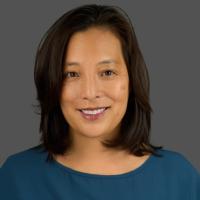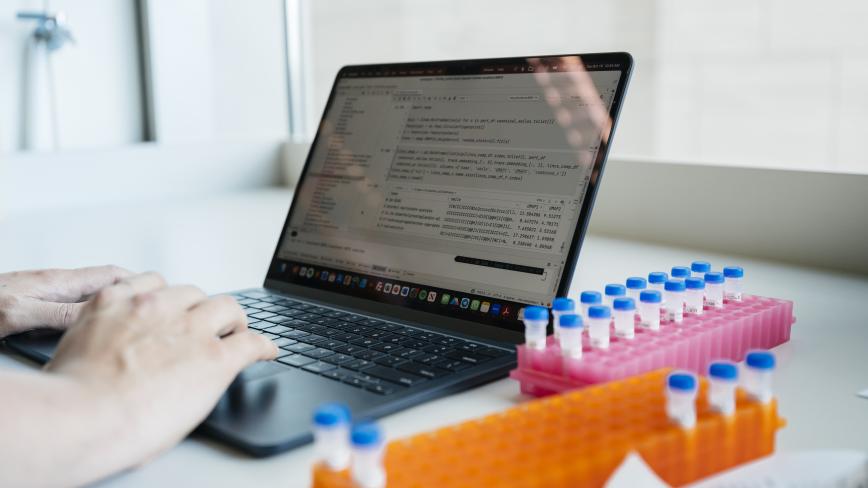Data has become critical to driving advancements in health care delivery, discovery and education. UC Health’s Center for Data-driven Insights and Innovation (CDI2) is pivotal in powering breakthroughs and gains in the effectiveness of care models, especially using real-world evidence.
A crucial part of CDI2’s work is its annual conference that convenes a community of UC Health leaders, and even patients, in the areas of research, data science, artificial intelligence, biomedicine and health data governance. This year’s gathering, the Data to Action: Driving Healthcare Innovation conference, is coming up on April 17th at UC Irvine and will focus on issues at the intersection of health care and data science, including the emergence of artificial intelligence tools.
As a preview for the conference, UC Health's Cora Han offers her perspective on the rapidly emerging uses of data in health care.
The use of data in medical research and care delivery is transforming health care as we know it
A decade from now, we hope to have more effective, higher-quality care that delivers better patient outcomes and helps reduce costs. The most exciting part is that this data-driven evolution comes from work with patients that happens every day in the real world of UC hospitals and clinics, which enables health care professionals to learn and adapt more quickly. Our UC Health Data Warehouse holds data from more than 375 million of these encounters with the over 9 million patients seen at a UC facility since 2012.
One example of how this type of health data is being used to accelerate medical discoveries is a recent study using real world clinical data that identified new medication combinations that were more effective for diabetes patients than the current standard of care.
Addressing challenges in the data-driven evolution of health care
To truly realize these benefits, we must address the challenges accompanying data-intensive projects. For example, developing and implementing AI models in health care demands careful consideration of factors such as bias mitigation and the creation of secure data infrastructures and research enclaves. Through our development of the UC Health Data Warehouse over the past 5 years, I believe we have created several best practices that can serve as a model for other institutions.

We must also continue implementing data governance that respects privacy and provides transparency. Our UC experts continue to advance practices in this area, and we’ll soon be publishing our second health data governance report that details the recommendations of a UC task force of scientists, clinicians, ethicists, privacy and regulatory experts and IT specialists. Among the recommendations are details about the development of a justice-based model of health data use.
Training the next generation of data-minded clinicians
Another imperative for capitalizing on the potential of data science to drive breakthroughs that benefit patients is training the next generation of researchers and clinicians with data science skills and creating a community of data-skilled investigators. We began that work several years ago through the support provided by the CDI2 team to UC researchers, and I’m pleased to see the growing community coming together at our annual conference. We’re also seeing data science fellowships at some of our medical schools and other training opportunities for the next generation of researchers and scientists.
What I’m looking forward to at the Data to Action: Driving Healthcare Innovation conference
I look forward to the discussions at this year’s CDI2 conference that will draw together perspectives from a community of experts across disciplines to advance our thinking on these topics and more. I expect some top highlights to be:
- The "Patient Perspectives on Data Sharing and Health Data Governance" discussion. This panel will include two patients with chronic health conditions, who will share their perspectives on how health information should be used, consent, and the tension between public health and the public good.
- The practicality of "Balancing AI Vision and Reality in Healthcare" discussion, which should be especially intriguing as interest in AI can sometimes seem speculative. What is practical now, and what are the most feasible next steps?
- Hearing about the work, case studies and best practices happening at UC Health locations during the sessions, such as one from UC San Diego on "Real-time Clinical Predictive Analytics and Real-world Evidence Generation" and another on "Empowering 'Real World' School-Based Physical Fitness Testing Data to Improve Child Health" from UC Irvine.
California has always been at the forefront of technological innovation, and this spirit drives us in health care. The UC Health system's strength lies in our ability to harness our collective knowledge, empowering us to accelerate advancements in patient care. This is an exciting time, and the impact of data on health care will only grow from here.
Cora Han, J.D., is UC Health's Chief Health Data Officer and Executive Director of the Center for Data-driven Insights and Innovation (CDI2). Han is a nationally recognized expert and speaker on health data governance and privacy topics.
About University of California Health
University of California Health comprises six academic health centers, 20 health professional schools, a Global Health Institute and systemwide services that improve the health of patients and the University’s students, faculty and employees. All of UC’s hospitals are ranked among the best in California and its medical schools and health professional schools are nationally ranked in their respective areas.

